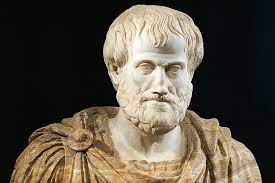Aristotle’s View of Ethics and Happiness
Mar 25, 2023
This paper explores Aristotle's view of ethics and happiness. According to Aristotle, the ultimate goal of human life is eudaimonia, or a state of complete well-being. He believed that this could be achieved through virtuous action based on reason and practical wisdom. To achieve this, one must practice good habits and cultivate moral character traits such as courage, temperance, justice, friendship, and generosity.
Aristotle argued that in order to live a good life one must also develop intellectual virtues such as understanding and knowledge. Since these are developed over time through education, it follows that he thought that learning was an important part of achieving eudaimonia. In his Nicomachean Ethics, he argued that when we make choices we should aim for the highest good which is eudaimonia. This means that our decisions should be guided by what we think will bring us the most happiness in life, not simply pleasure or material gain.

Aristotle further argued that an individual's character and behaviour were shaped by his environment and upbringing so it was important to surround oneself with people who had similar moral values. He also believed that cultivating virtue was a necessary condition for achieving happiness, since he thought that true happiness could only be found when a person was living in accordance with their own nature. Therefore, it is important to understand one's individual strengths and weaknesses in order to cultivate virtuous behaviour and develop practical wisdom.
Ultimately, Aristotle viewed ethics as an integral part of living a happy life, since he believed that happiness was the result of virtuous action and living in accordance with one's nature. His views on ethics provide a framework for understanding how to make decisions that will lead to lasting satisfaction and eudaimonia.
In conclusion, Aristotle's view of ethics and happiness is based on practical wisdom and making choices that bring us closer to eudaimonia. He argued that this could be achieved by cultivating virtues such as courage, temperance, justice, friendship and generosity, as well as developing intellectual virtues through education. By understanding our own strengths and weaknesses and following ethical principles we can strive towards achieving true happiness in life.
